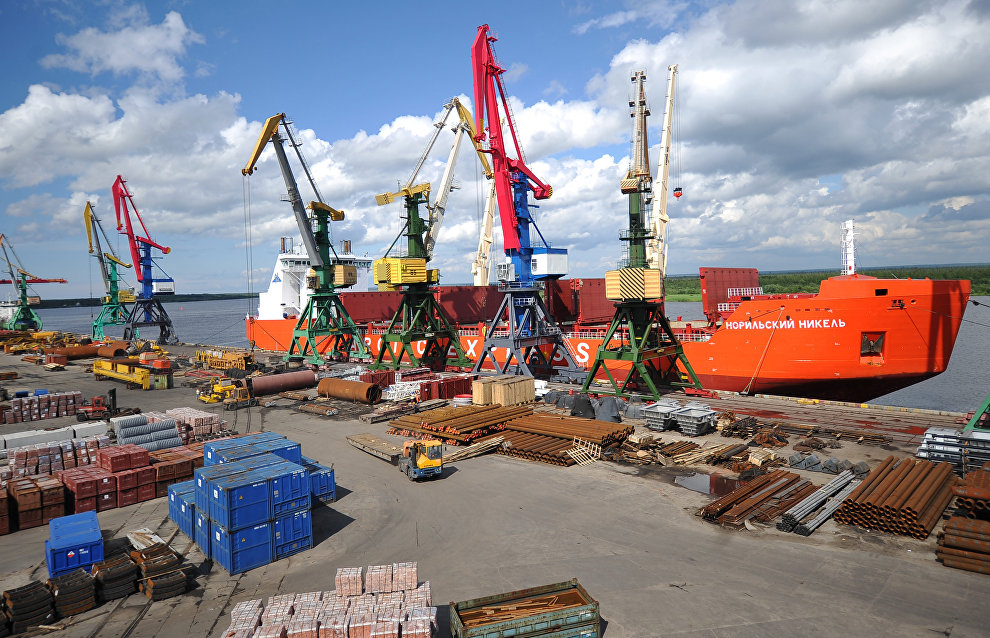Arctic Floating University crew back in Arkhangelsk after the longest expedition across the Arctic Ocean
The Mikhail Somov research vessel has returned to the Port of Arkhangelsk after a 44-day mission in the Arctic Ocean. During the expedition, scientists and students carried out research on Franz Josef Land, Russia’s northernmost archipelago, as well as on Novaya Zemlya, the islands in the Kara Sea, in the Yenisei Gulf, the Yamal coast and the Yugorsky Shar Strait. The team included 17 participants from ten universities and research companies in Arkhangelsk, Moscow, St. Petersburg, Perm and Syktyvkar, the press service of the Ministry of Science and Higher Education reports.
“The expedition definitely was a success, the longest voyage of the 17 expeditions conducted since the Arctic Floating University project was launched in 2012,” Yelena Kudryashova, Rector of the Northern (Arctic) Federal University said.
According to, Lyudmila Drachkova, head of the Arctic Floating University expedition team, the researchers spent 15 days working in the vicinity of Franz Josef Land, above 80 degrees north latitude, which was also a record.
“They made a total of 11 land expeditions, including at Cape Zhelaniya on Severny Island of Novaya Zemlya, four islands of Franz Josef Land, and Oleny and Vilkitsky islands in the Kara Sea. The researchers were flown to the shore by helicopter. The northernmost point they reached was Hayes Island at 80 degrees 34 minutes and 50 seconds north latitude,” Lyudmila Drachkova added.
The Franz Josef Land Archipelago in the Arctic Ocean is difficult to access; many of its islands remain almost unvisited. The results obtained during the Arctic Floating University expedition are of great scientific value primarily for geology, microbiology, biology, and soil science. They were the first to do research in some locations in Franz Josef Land, and they obtained unique samples.
Artemy Goncharov, head of the Laboratory of Functional Genomics and Proteomics in Microorganisms at the Institute of Experimental Medicine, assembled an extensive collection of biomaterial from birds, animals and marine mammals.
“These samples will be used to search for microorganisms that are resistant to antibiotics. We already know that the problem of antibiotic resistance has reached Arctic ecosystems, even Wilczek Island on Franz Josef Land, where people visit very rarely,” the scientist shared the first results.
Another part of his research focused on pathogenic bacteria that can enter the Arctic via migratory birds. During the foray to Cape Sopochnaya Karga in Taimyr, they obtained samples of ancient permafrost from the period when mammoths and other Pleistocene animals walked the Arctic. They will be analyzed in a laboratory in St. Petersburg. Russia is creating a state system for permafrost monitoring; assessing microorganisms contained in permafrost is an important part of this monitoring.
Anton Shmanyak, a leading geologist at the Karpinsky All-Russian Geological Research Institute, collected rock samples from Wilczek Land, Wilczek Island and the Komsomolskiye Islands; the samples will be dated for a better understanding of these places’ geological history.
“These rocks are very valuable because these complexes have never been studied; no one has been here. An analysis of the samples obtained during the voyage will help determine a more precise age of the rocks on the Arctic Ocean coast and islands, their tectonic, stratigraphic and geochemical characteristics and make the geological map of the Russian Federation more accurate,” the researcher said.
Yury Bobrov, Head of the Department of Environment and Geology at Pitirim Sorokin Syktyvkar State University, found several new plant species on the islands of Franz Josef Land that had not been seen here earlier. On Wilczek Island, it was a variety of saxifrage. On the Komsomolskiye Islands – Arctic poppies, two varieties of saxifrage, scurvy-grass, mouse-ears, buttercups, a variety of whitlow-grass, meadow-grass and foxtail grass.
